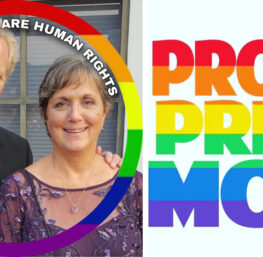Wall Street Journal Online ROBERT H. BORK
What do the nomination of a replacement for Sandra Day O’Connor, constitutional law, and moral chaos have to do with one another? A good deal more than you may think.
In Federalist No. 2, John Jay wrote of America that “providence has been pleased to give this one connected country to one united people–a people descended from the same ancestors, speaking the same language, professing the same religion, attached to the same principles of government, very similar in their manners and customs.” Such a people enjoy the same moral assumptions, the cement that forms a society rather than a cluster of groups. Though Jay’s conditions have long been obsolete, until recently Americans did possess a large body of common moral assumptions rooted in our original Anglo-Protestant culture, and expressed in law. Now, however, a variety of disintegrating influences are undermining that unanimity, not least among them is the capture of constitutional law by an extreme liberationist philosophy. America is becoming a cacophony of voices proclaiming different, or no, truths.
Alexis de Tocqueville observed that “if each undertook himself to form all his opinions and to pursue the truth in isolation down paths cleared by him alone, it is not probable that a great number of men would ever unite in any common belief. . . . Without common ideas there is no common action, and without common action men still exist, but a social body does not.”
Contrast Tocqueville with Justices Harry Blackmun and Anthony Kennedy. Justice Blackmun wanted to create a constitutional right to homosexual sodomy because of the asserted ” ‘moral fact’ that a person belongs to himself and not others nor to society as a whole.” Justice Kennedy, writing for six justices, did invent that right, declaring that “at the heart of [constitutional] liberty is the right to define one’s own concept of existence, of meaning, of the universe, and of the mystery of human life.” Neither of these vaporings has the remotest basis in the actual Constitution, and neither has any definable meaning other than that a common morality may not be sustained by law if a majority of justices prefer that each individual follow his own desires.




This so-called “cacophony” is also coming from within the Christian community. Ask the RCC and the Orthodox and they probably would find no Constitutional right to selling birth control pills or condoms, but ask the Methodists or Southern Baptists and they find that there is (so long as it’s not the “morning after pill”).
Baptists oppose gambling and alcohol and likewise would probably find little Constitutional “right” to either: would this mean the cancellation of “Bingo Nights” at St. Bridget’s on Friday or a replacing of the traditional Communion wine with a bottle of Communion “Fre”? After all, what “moral right” is there to gamble or get drunk (or even drink in moderation)? None that I can see.
So … whose truth are we supposed to be following here when this supposed consensus among believers doesn’t exist?
JamesK,
I see no basis in the actual Constitution for rights to any of the items you listed. I think you might be confusing two questions. The first is what does the Constitution define as a right?
1) Right to birth control? I think the Supreme Court case that decided a right to birth control was wrongly decided and that there is no basis in the actual words of the Constitution to support it.
2) Right to gambling? All states have some laws that control gambling. Most states have laws that severely restrict gambling. Once again, I see no wording in the Constitution that would support a Constitutional right.
3) Right to Alcohol? In the specific incidence of Communion wine, I think it is protected by the first ammendment. However, in the context of general society, I see nothing in the Constitution that supports a right to alcohol. The 21st ammendment mearly removed the Constitutional prohibition to use of alcohol.
Would you care to offer any specific arguments for why you think these items are rights protected under the Constitution?
The question that I think you might really be aiming at is whether such restrictions would be good public policy. With regard to this question, I offer the following thoughts:
1) Access to birth control – If you read Humanae Vitae, you will see that every prediction that Pope Paul VI made regarding the consequences of widespread birth control have come to pass. This makes me question if it might be wise to have limits on access to birth control. However, I don’t think that there is anywhere near enough support in the US for these types of restrictions. Also, I think this might be a case where in our current society that the use of coercive power of the government in this area would cause far more problems than it solved.
2) Access to gambling – I do think our country would be better off without large casino gambling. However, I also think that the effects of eliminating it would be immense. This is especially true if you consider the effects on the economy in Nevada. I don’t think eliminating the legal gambling that already exists would be a wise thing to do.
3) Access to alcohol – I think that alcohol does tremendous damage in the US. I think the country would be better off today if prohibition had been left in place and was enforced. I think that if people understood the full effects of alcohol on society, prohibition would never have been repealed. However, I also suspect that reenacting prohibition would result in repeated widespread flaunting of the law. I also don’t think there is near enough support for this type of a measure for it to have a reasonable chance at being approved.
Steve, what I don’t understand is how many conservatives (including Orthodox and especially the RCC) can maintain a liberal approach towards the Bible and find all sorts of creative dogmas and doctrines that find little support from Scripture while simultaneously keeping a literal fundamentalist (not to mention minimalist) approach towards the “Sacred Constitution”.
There also seems to be two problematic assumptions here (and which are ones I do not hold):
a) If it’s not explicitly listed in the Constitution, it’s not a right. This seems like an odd assumption considering most human hobbies are not enumerated in the Constitution, including bike riding, fly fishing and gossiping about one’s neighbors.
b) Morally ambiguous actions are not “rights”. Gambling may or may not be immoral, depending on how much one is gambling relative to one’s income. Also, some find this a highly enjoy pasttime that they would consider essential to their pursuit of happiness. Just ask Bill Bennett.
James,
The Consistution is a man made document that has as its most basic purpose to place limits on the power held by the government. One of the ways in which it limits the power of government is by defining certain areas that it identifies as rights that the government cannot take away. The Constitution also provides for mechanisms that can be used to make changes the Constitution. Those mechanisms are designed to make changes difficult so that the basic protections of the Constitution are not watered down.
One of the most basic premises behind the US system of government is that laws should be written and that we should be governed by those laws. In recent years, the supreme court has decided numerous cases, not according to the law as written, but according to what the justices personally believe the law should be. Thus, the constitution means whatever a particular justice wants it to mean.
Part of the reason for the success of the US has been the ability of the citizens to get laws changed if they disagree with them. Once the supreme court replaces the written laws with its own judgement of what law should be, this ability disappears. That’s how we get travesties of justice like Roe versus Wade.
Most human passtimes are not defined as rights in the US Consititution. Nor do I think they should be. That doesn’t mean that they should be illegal. It just means that the Constitution is not necessarily the best place for these types of things to be addressed.
My neighborhood used to have an intersection that always backed up because it was a four way stop. Everyone in the neighborhood complained and the four way stop was eventually replaced by a traffic light. This was simply a case of good responsive government. It was the right thing for the local government to do to put in the stop light. However, there was certainly nothing in the Constitution that gives me or my neighbors the Constitutional right to a stop light.
Bike riding is an activity that many people find enjoyable. In addition, it is an activity that produces many health benefits. However, there is no right under the US Constitution to ride a bike. If a large enough problem presents itself with local laws passed that make it illegal to ride a bicycle, maybe a group will form that would push for a Constitutional ammendment to make riding a bike a Constitutional right. I haven’t seen any signs that this is a problem in our society today though.